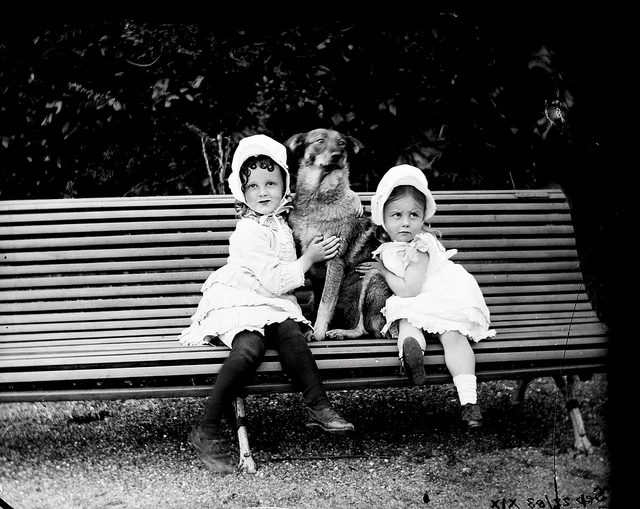by Lisa Cooke | Jan 30, 2014 | 01 What's New, Conferences, RootsTech
 One of the great things about presenting at genealogy conferences like RootsTech is the FREE swag they give you. Well, I’m going to pass this gotta-have-it swag along: a free all-access pass to RootsTech 2014.
One of the great things about presenting at genealogy conferences like RootsTech is the FREE swag they give you. Well, I’m going to pass this gotta-have-it swag along: a free all-access pass to RootsTech 2014.
RootsTech is shaping up to become the biggest annual family history event in the U.S. There’s nothing quite like it. RootsTech combines the cutting-edge excitement of a technology industry conference with learn-it-from-the-experts classes and hands-on workshops of leading genealogy educators. Whether you’re new-ish to genealogy or an expert researcher, there’s something for you at RootsTech. Check out the full agenda here, which includes a keynote by The Pioneer Woman and over 200 sessions.
RootsTech is next week in Salt Lake City. If you can be there, enter to win this way:
1. Go to the Genealogy Gems Facebook page. Like it (if you haven’t already).
2. Post a comment with the hashtag “giveaway” (#giveaway) and WHY you want to attend RootsTech. You’ll be automatically entered to win.
3. Enter by midnight on Sunday, February 2 and I’ll announce a winner on Monday, February 3, 2014.
No purchase is necessary, but please only enter if you can use the pass or know someone who can.
by Lisa Cooke | Dec 27, 2013 | 01 What's New, British, Conferences
It’s always a joy for me to get to get out and about and meet readers and listeners in person. In July 2014 there’s a wonderful opportunity for us to get together in person, talk genealogy and experience the joy of travel: the Unlock the Past Cruises for their 2014 British Isles Cruise!

I’ll be joining eight other incredible genealogists to bring cruisers an exciting assortment of family history classes aboard the beautiful Marco Polo ship (right). Check out the Presenters page
You’ll have around 40 topics to choose from, held mostly in the evening so there will be loads of time to explore the breathtaking landscape.
Itinerary:
- day 1 – depart Tilbury, London – 6pm (boarding from 12.30pm)
- day 2 – at sea
- day 3 – Invergordon, Scotland – 7.30am-10pm
- day 4 – Kirkwall, Orkney Islands – 7am-6pm
- day 5 – Stornoway, Outer Hebrides – 7.30am-10pm (transfer to shore by tender)
- day 6 – Tobermory, Isle of Mull – 7.30am-4pm (transfer to shore by tender)
- day 7 – Dublin, Ireland – 8am-5.45pm
- day 8 – St Mary’s, Isles of Scilly – 9am-6pm (transfer to shore by tender)
- day 9 – St Peter Port, Guernsey – 7.30am-6pm (transfer to shore by tender)
- day 10 – Honfleur, France – 9am-5pm
- day 11 – arrive Tilbury, London – 9am
My understanding is that this cruise is filling up very quickly so if you’re interested be sure and click here for more details.
by Lisa Cooke | Jan 13, 2015 | 01 What's New, Australian, British, Findmypast, Irish, Military, Records & databases
Did your Irish ancestors have a dog? Over 3.5 million Irish Dog Licence registers have been added to a collection already online at

“More Besties from the Clonbrock Estate.” Taken September 22, 1883. National Library of Ireland photograph, posted at Flickr Creative Commons National Library of Ireland on the Commons page. No known copyright restrictions.
FindMyPast. “Now containing over 6 million records, the Irish Dog Licences list not only the name, breed, colour and sex of your ancestor’s four legged friend, but also the owner’s address and the date the licence was issued, making them a valuable census substitute,” says a recent FMP press release.
Also new on the site are other notable collections, as described by FMP:
- Trade Union Membership registers (3.4 million+ records) with digitized images of original records books from 9 different unions. The documents include details about individual members such as payments made, benefits received, names of spouses, and a number of unions published profiles of their members or those who held offices. Many unions kept detailed records for when a member joined, paid their subscription, applied for funeral benefits or superannuation (retirement). These records allow you to follow your ancestor’s progress within the union and perhaps uncover previously unknown details of their working lives and careers. The documents can also include details about the trade unions themselves, such as directories of secretaries, meeting dates and times and items of trade union business. Many trade unions also included international branches from Ireland to Australia to Spain and Belgium.
- Indexes to over 28,000 articles in 2000+ PERSI-indexed periodicals. These include magazines, newsletters and journals, according to location, topic, surname, ethnicity and methodology. (Learn more about PERSI on FindMyPast in our blog post on the topic.)
- Peninsular War, British Army Officers 1808-1814 dataset, compiled by Captain Lionel S. Challis of the Queen’s Westminster Rifles shortly after WW1. Using Army lists, Gazettes, despatches, official records and regimental histories, Challis gathered information on more than 9,600 officers who fought for control of the Iberian Peninsula during the Napoleonic Wars and recorded them on index cards. Each record contains an image of the original handwritten index cards and a transcript.
- South Australia Births 1842-1928. Over 727,000 records and date back to when the compulsory registration of births first began in 1842. Sourced from an index transcribed by volunteers from the South Australian Genealogy and Heraldry Society Inc., each records consists of a transcript that usually includes the child’s full name, gender, date of birth, place of birth and registration number. The names of both parents will also be included and in some cases the mother’s maiden name will also be present. South Australia’s colonial origins are unique in Australia as a freely settled, planned British province.
- South Australia Marriages 1842-1937 contain over 457,000 records. Each record includes a transcript that can contain a variety of information such as the first and last names of the bride and groom, their ages, birth years, marital status, the date and place of their marriage as well as their fathers’ first and last names.
- South Australia Deaths 1842-1972 contain over 605,000 records and span 130 years of the state’s history. Each record consists of a transcript that usually lists the deceased’s full name, gender, status, birth year, date of death, place of death, residence, the name of the informant who notified authorities of their death and their relationship to the informant.
 Are you making the most of your online searches at FindMyPast and other genealogy websites? What about on Google? Learn more about search strategies that work in this blog post!
Are you making the most of your online searches at FindMyPast and other genealogy websites? What about on Google? Learn more about search strategies that work in this blog post!
 One of the great things about presenting at genealogy conferences like RootsTech is the FREE swag they give you. Well, I’m going to pass this gotta-have-it swag along: a free all-access pass to RootsTech 2014.
One of the great things about presenting at genealogy conferences like RootsTech is the FREE swag they give you. Well, I’m going to pass this gotta-have-it swag along: a free all-access pass to RootsTech 2014.


